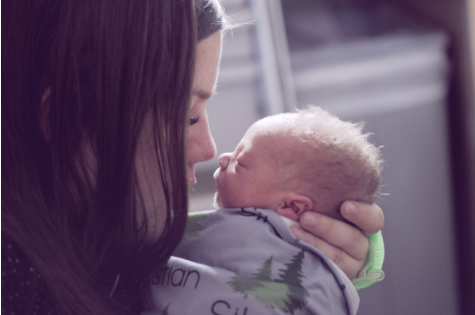Pregnant women undergo a vast array of hormonal and bodily changes when they are pregnant, and these can have a large impact on the body during pregnancy, causing issues such as back pain, varicose veins and faintness.
However, health problems can continue post-natal, and women should be aware of these after their baby is born. If you are suffering from any post-pregnancy health issues, this health guide will help you to consider the available solutions and aftercare.
Dental Care
Although pregnancy in itself cannot damage your teeth, the increased amount of hormones flooding your body can change the body’s reaction to plaque and so diminish the quality of your teeth. These hormonal changes can also make your gums inflame or bleed, and this can lead to pregnancy gum disease. Additionally, food cravings can mean that you will be eating food that is more damaging to your teeth, such as sugary and acidic foods.
You can prevent pregnancy affecting your teeth by having a good dental hygiene routine, such as flossing and brushing twice a day with an electric toothbrush. If your teeth are permanently damaged after your pregnancy, you should consider the benefits of All on Four implants, which will allow you to feel comfortable in your smile and mean that you can enjoy your favourite foods again.
Skin Issues
Due to increase hormones and changes to your blood flow, pregnancy can also alter the consistency and appearance of your skin. Conditions such as acne are exacerbated by hormonal changes throughout your life, and you should consider using specialist acne facewash or creams to combat this. Your doctor may also be able to find you appropriate medication or prescription creams for acne if it does not go away of its own accord after pregnancy.
You may also get stretch marks around your abdomen and other areas of the body after pregnancy, and if so, you should seek out ointments and creams that help to lessen the darkness and appearance of these marks.
Hair Problems
Many women also suffer from hair loss during pregnancy, and this can be distressing to women. Although your hair should return to normal after the birth, you can help the condition of your hair by avoiding intense hair treatments and styles such as blow drying or putting braids or weaves into your hair, using shampoos that contain biotin, and eating a healthy diet that is high in antioxidants, zinc, and vitamins A, C and E.
Post-Natal Depression
Post-natal depression is common amongst women with a new-born baby, and you can help to ease your symptoms such as feeling down and having mood-swings by visiting your doctor or telling your midwife. Your doctor can help to advise you on the best way to solve this, such as visiting a counsellor, assessing whether you should breastfeed, exercise such as pelvic floor exercises, and attempting to get enough sleep by getting to support of family and friends or sleeping when you can.








 Agree (0)
Agree (0) Disagree (
Disagree (__small.png)









__small.png)










